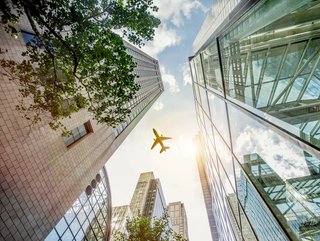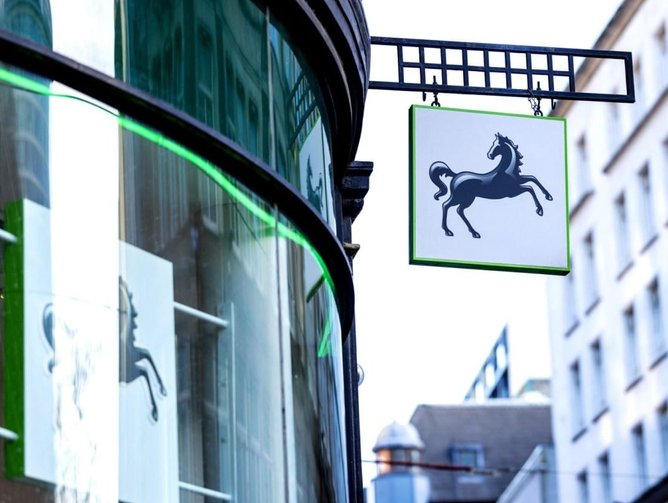SAP to PwC: Companies Embracing Sustainable Business Travel

While air travel for leisure has bounced back to near pre-pandemic heights, corporate air travel has been much slower to return.
That’s according to the latest analysis from Travel Smart Emissions Tracker, which shows almost half of the 217 global companies tracked slashed their business travel carbon emissions by at least 50% between 2019 and 2022.
Given that a 50% reduction in business travel from pre-Covid levels is necessary this decade to cap global warming at 1.5 degrees Celsius, according to Transport and Environment – this is a sustainable step in the right direction.
Supporting this move are various governments, stepping up with regulations that put more responsibility on companies to meet these goals.
From July 2024, businesses in the Netherlands will start to report to the government on progress towards the mandated 50% reduction in their domestic mobility emissions by 2030.
While in France, short-haul flights are banned – with the French government replacing flights under two and a half hours with train journeys.
Beyond government regulation, more companies are introducing strategies to cut travel emissions, as they look to ambitious net-zero goals.
So while some corporate players edge closer to 2019 flying levels, like JP Morgan Chase, Merck and Johnson & Johnson, many more are putting their old, high-flying days behind them.
Among companies reducing their corporate air travel the most, according to the report – software giant SAP, pharma company Pfizer, banking group Lloyd’s and Big Four firm PwC.
SAP Turns to Decentralised Events
For over a decade now, climate action has been at the top of SAP’s corporate sustainability agenda and tackling business travel a more recent priority.
By increasing the use of virtual meetings and being more strategic in the curation of events, SAP reduced airline carbon emissions by a staggering 86% between 2019 and 2022.
Take the software giant’s most recent Sapphire conference. Instead of conceptualising as one central event in Orlando, Florida, as has been done in the past, SAP organised a decentralised event in the US, Spain, Brazil and online.
With this, SAP reduced CO2 emissions by nearly 24,000 tonnes, due primarily to the shorter distances travelled in mathematical terms, that corresponds to around 2,200 around-the-world flights,” according to SAP’s Event Manager Jenny Bittmann.
Carbon offsetting is also part of the company’s sustainable travel strategy.
“As far as emissions are concerned, we want to reduce travel activities even more, and we’ve been purchasing carbon offsets for unavoidable trips for some time now,” says Bittmann.

PwC Changing Behaviour of Employees Around Travel
For PwC, its bold commitment to net zero goal 2030 means the big four firm is decarbonising the way it operates and that includes travel.
As the world’s second-largest professional services network, with offices in 152 countries and nearly 328,000 employees worldwide, business travel is one of the most significant contributors to the firm’s carbon footprint – and one of the most challenging to tackle.
In tracking the emissions related to travel, PwC has embraced the philosophy of maximising digital technologies while getting more from less when flights and physical meetings are required – and this has seen them slash air travel emissions by 76% since 2019 and all business travel emissions by half.
In a recent interview, Marissa Thomas, PwC’s COO in the UK said: “Flights account for the majority of our carbon emissions so we’re going to meet our net zero target if our people take a really thoughtful approach to air travel.”
Tackling the behaviour of its employees is central to PwC’s strategy on travel and in the UK, the firm recently introduced The Thoughtful Travel Programme – designed to encourage staff to be more mindful of emissions when planning business travel and challenge them on frequency and model of travel.
“We’re encouraging people to make the most of their business trips, perhaps spending longer at a destination to reduce multiple visits,” says Thomas. “Seeing clients and colleagues in-person is really important, so we have to find ways to do that in the most carbon efficient way.”
The consultancy has also turned to carbon offsets in the short-term, offsetting air travel emissions from the firm’s largest territories since 2018 and across all member firms since 2023.
Employing rigorous assessment methodologies to ensure that any chosen offset aligns with the firm’s sustainability goals, PwC’s carbon credit portfolio in 2023 was sourced from 20 projects across 11 countries, collectively impacting 1.6 million people and creating over 45,200 jobs.

Lloyds Empowers Employees to Make Sustainable Change
Taking a similar approach, Lloyds Banking Group has committed to keeping travel emissions below 50% of 2019 levels.
“We’ve pledged to halve our travel-related emissions, both business and commuting, as thy are a big part of our operational carbon footprint,” says Matteo Deidda, Senior Sustainability Manager, People and Places for Lloyds Banking Group.
Travel is a big contributor to Lloyds’ carbon emissions and if it wants to achieve net zero its own operations by 2030, tackling this is paramount.
Rather than giving employees a hard and fast travel policy, the Group, whose brands include Bank of Scotland and Scottish Widows, empowers employees to make their own decisions about the best travel for them – based on the ‘three Ps of sustainable travel’: Purpose, Planet and Planning.
This means only travelling when there is a real purpose to connect an collaborate with customers and colleagues, weighing up the carbon impact, and planning ahead to combine meetings and minimise journeys – an approach that sees Lloyds on track to meet its emissions reduction targets.
As part of its goal to achieve net zero standard by 2040, 10 years earlier than expected, Pfizer has committed to reducing emissions from business travel by 25% by 2025.
With a strategy that stresses ‘purposeful travel’ and utilising digital tools to limit travel, the pharma giant has been successful in slashing its corporate air travel emissions by 78% since 2019.

As part of its goal to achieve net zero standard by 2040, 10 years earlier than expected, Pfizer has committed to reducing emissions from business travel by 25% by 2025.
With a strategy that stresses ‘purposeful travel’ and utilising digital tools to limit travel, the pharma giant has been successful in slashing its corporate air travel emissions by 78% since 2019.
Meta Investing in Sustainable Aviation Fuel
For Meta, the world’s fifth-biggest tech company, tackling business travel emissions is critical if the company is to reach net-zero value chain emissions by 2030.
The social media giant is taking a two-pronged approach – rolling out a sustainable travel programme that promotes sustainable practices for employees taking necessary business travel and investing in Sustainable Aviation Fuel (SAF).
This includes internal resources that help educate employees about how to plan trips with a reduced carbon footprint, such as banners within its travel booking tool that inform employees of more sustainable carriers or aircraft types.
As a founding member of the Sustainable Aviation Buyers Alliance (SABA), the company is also committed to supporting efforts to drive market demand for SAF.
Since 2021, Meta has procured SAF directly from airline partners and participated in the SABA joint request for proposal process. The SAF we procure is certified by accredited third parties that provide independent verification of the carbon intensity reductions and ensure biofuel feedstocks are managed responsibly.
“As part of our commitment to reach net zero emissions across our value chain, we are proud to join SABA and contribute to a roadmap for sustainable aviation,” says Blair Swedeen, Director of Global Sustainability, Meta.
“Supporting efforts to drive market demand for SAF is important to our company because it’s important to our employees — and it is a vital part of our goal to reach net zero emissions.”
*******************
Make sure you check out the latest edition of Sustainability Magazine and also sign up to our global conference series - Sustainability LIVE 2024.
*******************
Sustainability is a BizClik brand.






